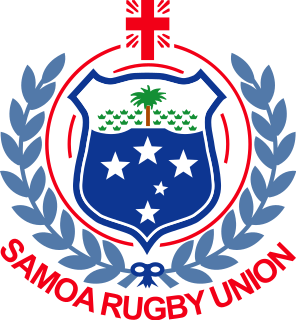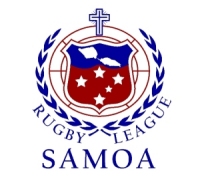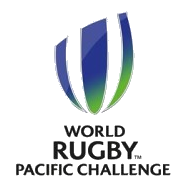The 1999 Rugby World Cup was the fourth Rugby World Cup, the quadrennial international rugby union championship. It was principally hosted by Wales, and was won by Australia. This was the first Rugby World Cup to be held in the sport's professional era.
The 1995 Rugby World Cup was the third Rugby World Cup. It was hosted and won by South Africa, and was the first Rugby World Cup in which every match was held in one country.
The 1991 Rugby World Cup was the second edition of the Rugby World Cup, and was jointly hosted by England, Scotland, Wales, Ireland and France: at the time, the five European countries who participated in the Five Nations Championship. This was the first Rugby World Cup to be staged in the northern hemisphere, with England the hosts of the championship game. Once again, South Africa was not represented due to international sanctions imposed upon the "Springboks" by the IRB, due to the Apartheid Government policies. Following on from the success of the inaugural 1987 Rugby World Cup, the 1991 World Cup received increased attention and was seen as a major global sporting event for the first time. Also for the first time, qualifying competitions were introduced as the number of entrants had increased from 16 nations four years before to a total of 33 countries. The eight quarter-finalists from 1987 qualified automatically with the remaining eight spots contested through qualifiers by 25 countries. This however resulted in only one new side qualifying for the tournament, Western Samoa replacing Tonga. The same 16-team pool/knock-out format was used with just minor changes to the points system.

The Samoa national rugby union team is governed by the Samoa Rugby Union. The name Manu Samoa is in honour of a famous Samoan warrior. They perform a traditional Samoan challenge called the siva tau before each game. Samoa Rugby Union were formerly members of the Pacific Islands Rugby Alliance (PIRA) along with Fiji and Tonga. They are ranked 15th in the world.

The Fiji national rugby union team competes every four years at the Rugby World Cup, and their best performances were the 1987 and 2007 tournaments when they defeated Argentina and Wales respectively to reach the quarterfinals. Fiji also regularly plays test matches during the June and November test windows. Fiji also plays in the Pacific Tri-Nations, and has won the most Pacific Tri-Nations Championships of the three participating teams.

The Samoa national rugby league team represents Samoa in rugby league football and has been participating in international competition since 1986. Known as Western Samoa prior to 1997, the team is administered by Rugby League Samoa and are nicknamed Toa Samoa.

The 1993 Rugby World Cup Sevens was held at Murrayfield in Edinburgh, Scotland, in April 1993. This tournament was the inaugural Rugby World Cup Sevens tournament. The International Rugby Board invited the established rugby union nations but also were keen to involve emerging nations in the event, recognising the fact that Sevens was providing the bridge between the developed rugby nations and those whose rugby union traditions were less well established.

The World Rugby Pacific Challenge, formerly the IRB Pacific Rugby Cup, is an annual rugby union football tournament held in Oceania since 2006. It is contested by national 'A' teams from the Asia-Pacific region. The tournament is run by World Rugby through Oceania Rugby.
This article presents the national team appearances in the Rugby World Cup. The article tracks the appearances, results, and debuts for all national teams that have participated in at least one Rugby World Cup.

Rugby union in Samoa is the country's most popular sport. The national teams in both the standard 15-man game and rugby sevens are consistently competitive against teams from vastly more populous nations.

Rugby union in Fiji is a popular team sport and is considered to be the national sport of the country. The sport was introduced to Fiji in the 1880s. Fiji is defined as a tier two rugby nation by World Rugby. The national team has competed at the Rugby World Cup and made it as far as the quarter finals. Their sevens team is also noted for their success, and have won the Rugby World Cup Sevens twice and the World Rugby Sevens Series three times.
For the 1991 Rugby World Cup, 16 nations participated in the finals tournament, half of which came through qualifying matches, and the other were granted automatic entry as they were quarter-finalists at the 1987 Rugby World Cup. The 25 teams taking part in regional qualifiers together with the 8 teams which qualified automatically brings to 33 the total number of teams participating in the 1991 Rugby World Cup.
Pool B of the 2007 Rugby World Cup began on 8 September and was completed on 29 September. The pool was composed of 2003 hosts Australia, as well as Canada, Fiji, Japan and Wales.

The 2019 Rugby World Cup was the ninth edition of the Rugby World Cup, the quadrennial world championship for men's rugby union teams. It was hosted in Japan from 20 September to 2 November in 12 venues all across the country. The opening match was played at Tokyo Stadium in Chōfu, Tokyo with the final match being held at International Stadium Yokohama in Yokohama. This was the first time that the tournament had taken place in Asia and outside the traditional Tier 1 rugby nations.

Uruguay has competed in four Rugby World Cup tournaments: 1999, 2003, 2015 and 2019.

Western Samoa have played in every Rugby World Cup since the 1991 Rugby World Cup. Their omission from the inaugural tournament in 1987 was controversial, as there were no qualifications. Their worst World Cup was in 2007 and 2015 when they finished fourth in their pool.

The United States has played in all but one Rugby World Cup since the inaugural tournament in 1987. The USA is the second strongest national rugby side in North America, and the third strongest in the Americas after Argentina and Canada.

The 2014 Women's Rugby World Cup was the seventh edition of the Women's Rugby World Cup, and the sixth held in Europe. The World Cup Final took place on August 17.

The qualification process for the 2019 Rugby World Cup in Japan began during the pool stages of the 2015 tournament in England, during which the top three teams from each of the four pools were awarded automatic qualification for the 2019 event. A further eight teams qualified through regional, cross-regional tournaments and the repechage process.











